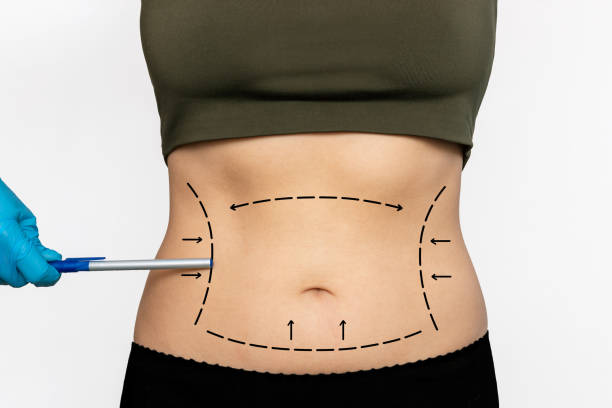Post-Liposuction Skin Care Practices For Riyadh Patients
Liposuction surgery has become one of the most popular cosmetic procedures for body contouring worldwide, and Riyadh is no exception. Patients in this region are increasingly seeking ways to improve their appearance by reducing stubborn fat deposits. However, undergoing the procedure is only part of the journey — effective post-liposuction skin care plays a crucial role in ensuring the best possible results and a smooth recovery.
Understanding and applying the right skin care techniques after this transformative surgery can significantly enhance healing, minimize complications, and help maintain the sculpted body shape achieved through the procedure.
Importance of Post-Liposuction Skin Care
Caring for your skin after liposuction is as important as the surgery itself. The skin needs to adapt and retract smoothly over the treated areas, which requires attention and the right care routines. Post-surgery skin care can prevent issues such as prolonged swelling, bruising, infection, and irregular contouring.
For patients undergoing Liposuction Surgery in Riyadh(عملية شفط الدهون في الرياض), environmental factors like Riyadh's dry climate mean that hydration and protection become paramount. Proper skin care speeds the healing process and promotes optimal skin elasticity, which supports the body’s new silhouette.

Initial Care Steps Immediately After Surgery
Rest and Gentle Care
Rest is vital immediately after surgery to help your body heal efficiently. Avoiding strenuous activities and maintaining a comfortable position that reduces tension on incisions supports quicker recovery. Gentle skin cleansing with mild, non-irritating products ensures wounds stay clean without causing irritation.
Compression Garments
Compression garments are often recommended after liposuction to reduce swelling and promote skin retraction. Wearing these as advised helps maintain consistent pressure on the treated areas, improves circulation, and provides support to the underlying tissues, which is essential for smooth healing.
Hydration and Moisturizing Strategies
Keeping the Skin Hydrated
Dryness can exacerbate discomfort and slow skin recovery. Using gentle moisturizers suitable for sensitive skin after the initial healing period can keep the skin supple. Moisturizing encourages elasticity, which is crucial for the skin to conform well to the new body contours.
Choosing the Right Products
Opt for fragrance-free, hypoallergenic lotions or creams that contain soothing ingredients such as aloe vera or chamomile. Avoid harsh chemicals that may inflame healing skin. In Riyadh’s arid environment, regular moisturizing routines become even more critical to counteract dryness.
Sun Protection and Avoidance
Why Sun Protection Matters
Exposure to sun during the recovery phase can cause pigmentation changes or scars to become more noticeable. Protecting the skin from direct sunlight is vital until it has fully healed.
Practical Tips for Riyadh Patients
Using a broad-spectrum, SPF 30 or higher sunscreen on non-sensitive areas can prevent UV damage. Wearing loose, breathable clothing that covers treated areas and avoiding peak sunlight hours can also help shield the skin.
Scar Management Techniques
Understanding Scar Development
Scarring is a natural part of the healing process. However, with proper care, scars can be minimized both in size and visibility. Keeping scars moisturized and protected from the sun during healing can reduce discoloration and thickness.
Recommended Scar Treatments
After complete wound healing, gentle massage with silicone-based gels or sheets can promote scar tissue remodeling and improve texture. These treatments encourage better scar appearance and skin flexibility.
Nutrition and Lifestyle for Healthy Skin Recovery
Nutritional Support
A balanced diet rich in vitamins A, C, E, and zinc supports skin regeneration and repair. Drinking plenty of water keeps skin hydrated from within, complementing topical skin care efforts.
Lifestyle Choices
Avoid smoking and excessive alcohol intake, which can impair healing. Regular, light exercise after your doctor’s approval improves blood flow, enhancing skin recovery and overall well-being.
Recognizing When to Seek Medical Advice
Monitoring your skin for signs of infection, unusual swelling, persistent redness, or severe pain is essential. Prompt medical consultation can prevent complications and ensure timely intervention if needed during the recovery phase after Liposuction Surgery in Riyadh.
FAQs
Q1: How soon can I start moisturizing my skin after liposuction surgery?
Moisturizing can typically begin once the initial incisions are healed and scabs have fallen off, usually within one to two weeks. Always follow your surgeon’s guidance for timing.
Q2: Are compression garments necessary after liposuction?
Yes, wearing compression garments as advised helps reduce swelling, supports proper skin retraction, and improves overall recovery outcomes.
Q3: Can I use any sunscreen during my recovery?
It’s best to use a gentle, broad-spectrum sunscreen with at least SPF 30 on healed skin areas. Avoid applying directly on open wounds or sensitive sites until fully healed.
Q4: What skincare ingredients should I avoid after liposuction?
Avoid products with alcohol, strong fragrances, retinoids, or exfoliating acids during healing to prevent irritation and inflammation.
Q5: How does Riyadh’s climate affect post-liposuction skin care?
The dry, hot climate increases the risk of skin dehydration, making hydration and moisturizing crucial during recovery for Riyadh patients.
Q6: When will my skin return to normal texture after liposuction?
Skin texture typically improves gradually over several months as swelling subsides and tissues settle. Patience and consistent care are key.